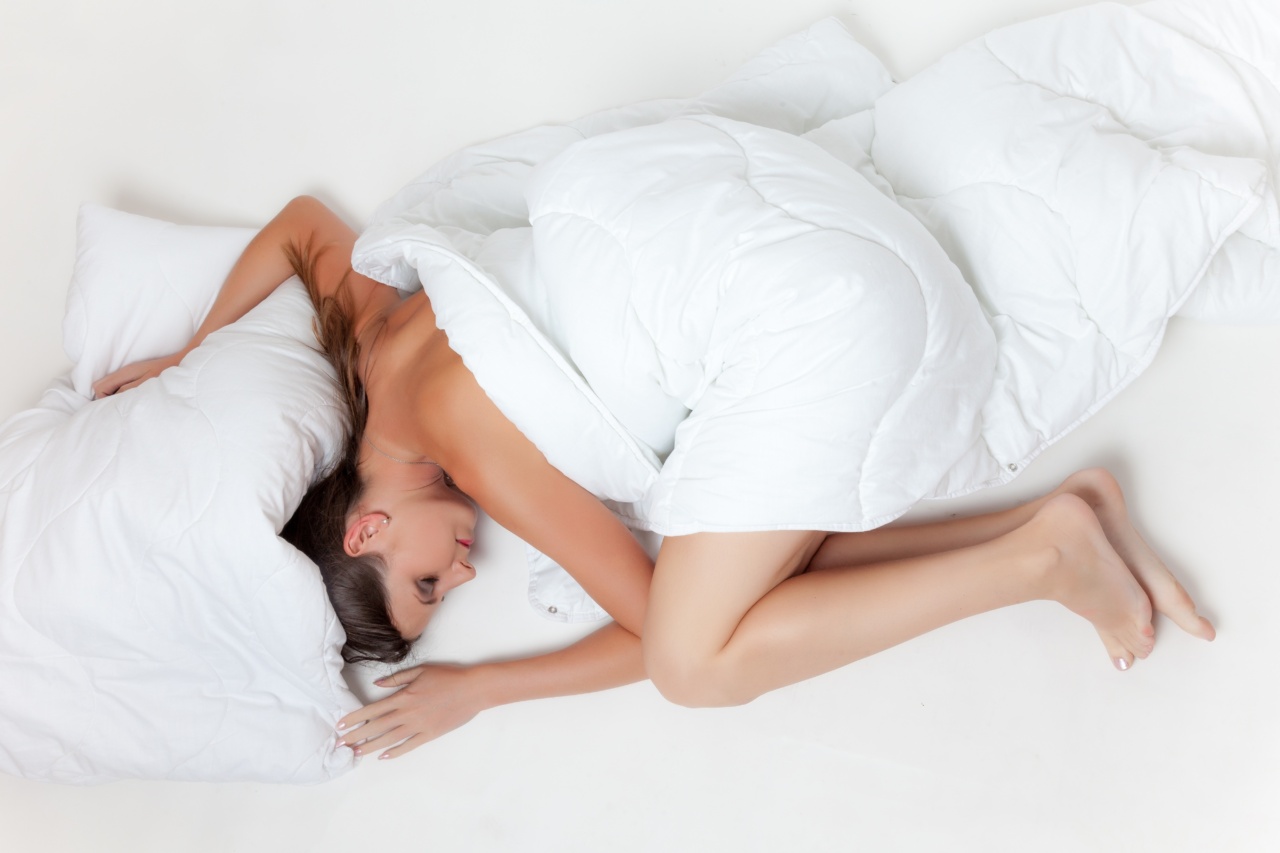Sleeping naked is not just a preference but has several health benefits. Interestingly, a lot of people do not know that sleeping naked can be an effective way to lose weight.
Some people go to the gym and reduce their food intake in a bid to shed some pounds. However, they may not get their desired results. Sleeping naked can come in handy as an effective way to reduce weight. In this article, we will explore the reasons why sleeping naked can help you shed pounds.
Reasons why sleeping naked can help you shed pounds
Lowers body temperature
Our bodies function optimally at a specific temperature range. When we sleep with clothes, we retain heat, which can cause our body temperature to rise, and this can lead to discomfort.
When our body temperature rises beyond a certain point, our blood vessels dilate, and this can cause us to sweat. Sweating may cause us to lose water weight, but it is not an effective way of losing fat. Sleeping naked, on the other hand, helps to regulate our body temperature.
When our body temperature is well-regulated, we sleep better, and this helps our metabolism function optimally. A well-regulated metabolism means that our bodies can burn calories more efficiently, leading to weight loss.
Reduces stress levels
Sleeping naked can also help to reduce our stress levels. Research has shown that stress increases cortisol levels, which, in turn, can trigger weight gain. When we sleep naked, we feel unhindered and unrestricted.
The feeling of freedom can help reduce our stress levels, and this can help to reduce our cortisol levels, leading to weight loss.
Improves sleep quality
A good night’s sleep is essential for weight loss. When we do not get adequate sleep, our bodies produce more ghrelin, the hunger hormone. This can cause us to crave unhealthy foods, leading to weight gain.
Sleeping naked can help to improve the quality of our sleep. Clothes can twist and turn while we sleep, causing discomfort and disrupting our sleep.
Sleeping naked removes any potential discomfort-causing elements and allows us to sleep soundly, which can help to reduce our ghrelin levels and, consequently, aid weight loss.
Boosts growth hormone production
Growth hormone is essential for tissue repair and growth, and it affords numerous health benefits, including weight loss. Our bodies produce growth hormone when we sleep, and this production is higher during deep or tight sleep.
Sleeping naked helps to reduce our body temperature, leading to deeper or tighter sleep. This, in turn, increases the production of growth hormones, which facilitates the burning of fat.
Reduced inflammation
Inflammation can cause numerous health problems, including weight gain. Prolonged inflammation can lead to the accumulation of visceral fat, which can cause several health issues, such as cardiovascular diseases.
Sleeping naked can help reduce inflammation levels. Sleeping with clothes can cause us to overheat, leading to discomfort and inflammation. Sleeping naked removes the chances of overheating and promotes the production of white blood cells, which helps to reduce inflammation, leading to weight loss.
Stimulates brown fat production
Brown fat is a type of fat that is essential for body heat production. Brown fat burns up to 20% more calories than white fat, leading to weight loss. Prolonged exposure to cold temperatures triggers brown fat activation.
Sleeping naked in a slightly cool room temperature can help trigger brown fat production, leading to weight loss.
Reduces insulin resistance
Insulin is a hormone that plays a vital role in the regulation of blood sugar levels. Insulin resistance occurs when our bodies are resistant to insulin, leading to high blood sugar levels and weight gain.
Sleeping naked can help to reduce insulin resistance. Overheating while sleeping can cause our bodies to produce stress hormones, such as cortisol, which can contribute to insulin resistance.
Sleeping naked helps regulate our body temperature, leading to reduced cortisol production, which, in turn, leads to reduced insulin resistance and weight loss.
Increases sex hormone production
Sex hormones, such as testosterone and estrogen, can influence weight loss. Testosterone helps to build lean muscle mass, while estrogen helps regulate body fat distribution. Sleeping naked can help to stimulate the production of these sex hormones.
Research has shown that sleeping naked increases the production of testosterone, which can increase lean muscle mass and contribute to weight loss.
Promotes better digestion
Good digestion is essential for weight loss. Eating heavy meals shortly before bedtime can impair digestion and lead to weight gain. Sleeping naked can promote better digestion.
Digestion requires a lot of energy, and our bodies function optimally when we sleep with our bodies in their natural state, which can help reduce the energy required for digestion. This, in turn, can lead to better digestion and weight loss.
Reduces calorie intake
Sleeping naked can also reduce our calorie intake. Research has shown that when we sleep well, we are more likely to make better food choices. Sleeping naked helps improve the quality of our sleep, leading to better food choices.
Conclusion
There are numerous reasons why sleeping naked can help you shed pounds.
Sleeping naked helps regulate our body temperature, promotes better sleep, reduces stress levels, reduces inflammation, and helps to increase growth hormone, sex hormone, and brown fat production. Additionally, sleeping naked can help promote better digestion and reduce calorie intake. Start sleeping naked today and enjoy the benefits of better sleep and weight loss.


























